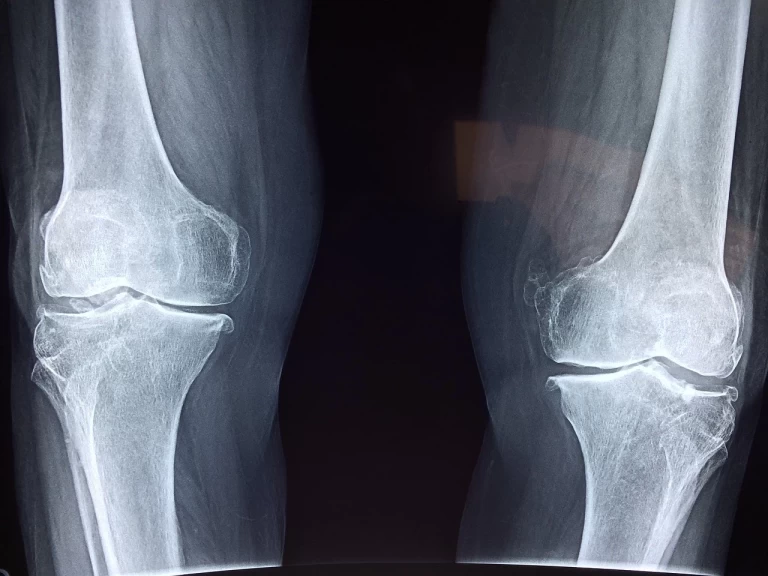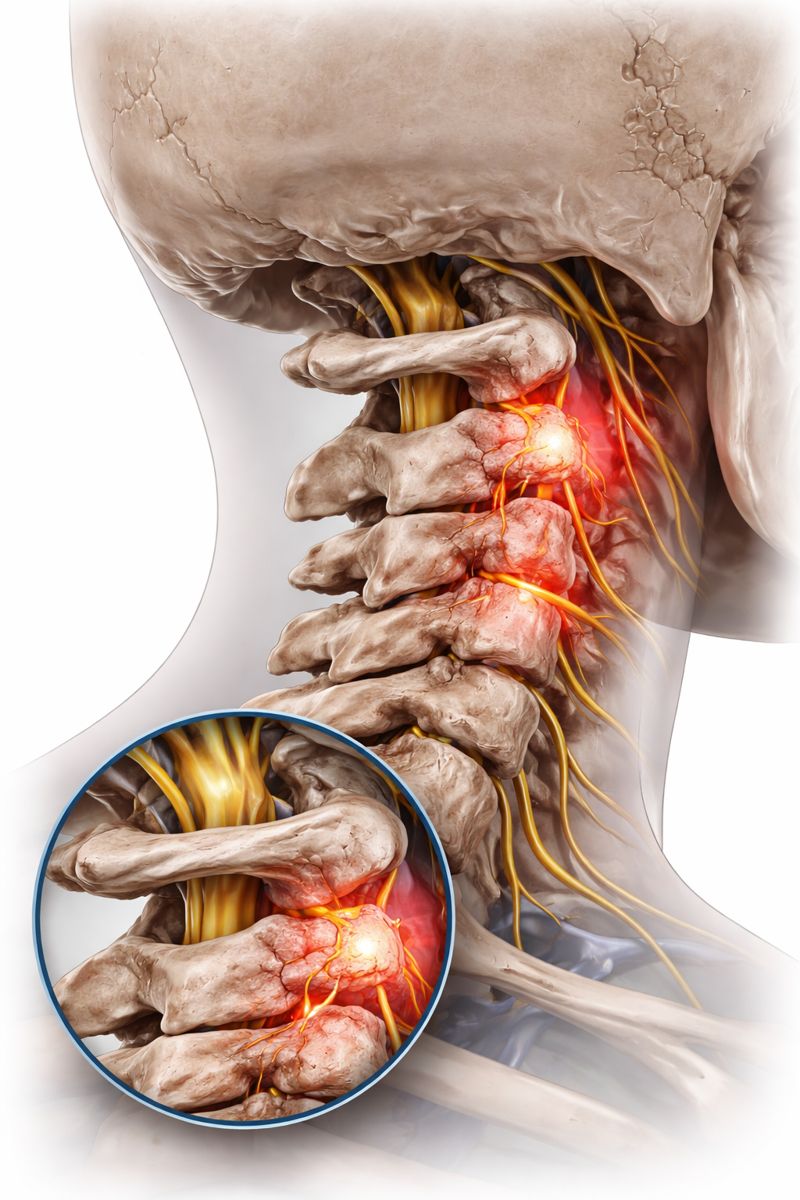
Muscle tension is a common complaint that many people experience at some point in their lives. Whether it’s a tight neck after a long workday or stiff shoulders that just won’t relax, muscle tension can be uncomfortable and disruptive.
But here’s the truth: muscle tension doesn’t begin with one stressful day. It’s often the result of a culmination of factors—poor posture, repetitive strain, emotional stress, and lifestyle habits—that build up over time.
By downloading the Digital Patient Chart mobile app you can better control your patient portal.
Understanding the root causes of muscle tension and how chiropractic care can help is key to finding lasting relief and improving your overall well-being.
What Causes Muscle Tension?
Muscle tension, also known as muscle tightness or stiffness, occurs when muscles remain contracted for extended periods, leading to discomfort, restricted movement, and even pain.
While a single stressful day might make you feel tense, the underlying causes often develop gradually. Here are some common contributors to chronic muscle tension:
- Poor Posture: Slouching at a desk, hunching over a phone, or sitting improperly for hours can strain muscles in the neck, shoulders, and back. Over time, these habits cause muscles to tighten and misalignments in the spine to develop.
- Repetitive Movements: Jobs or activities that involve repetitive motions—like typing, lifting, or even sports—can overwork specific muscle groups, leading to tension and fatigue.
- Emotional Stress: Stress triggers the body’s “fight or flight” response, causing muscles to contract as a protective mechanism. Chronic stress keeps muscles in a constant state of tension, particularly in the neck and shoulders.
- Lack of Movement: A sedentary lifestyle weakens muscles and reduces flexibility, making them more prone to tightness and discomfort.
- Spinal Misalignments: When the spine is out of alignment, it can put undue pressure on surrounding muscles, leading to tension and pain.
These factors don’t cause muscle tension overnight. Instead, they accumulate, creating a cycle of discomfort that can worsen without intervention. This is where chiropractic care comes in as a powerful solution for addressing muscle tension and its underlying causes.
The Connection Between Muscle Tension and Spinal Health
The spine plays a critical role in the body’s overall function. It houses the nervous system, which controls muscle movement and coordination.
When the spine is misaligned, known as a subluxation, it can disrupt nerve signals, causing muscles to tense up or compensate for the imbalance. Over time, this creates a vicious cycle of tension, pain, and restricted mobility.
Chiropractic care focuses on correcting spinal misalignments to restore proper nerve function and alleviate muscle tension.
By addressing the root cause rather than just the symptoms, chiropractors help patients achieve long-term relief and improved health.
How Chiropractic Care Helps Relieve Muscle Tension
Chiropractic care is a natural, non-invasive approach to managing muscle tension and promoting overall wellness.
Here’s how it works and why it’s so effective:
1. Spinal Adjustments for Alignment
Chiropractors use gentle, targeted adjustments to correct spinal misalignments. These adjustments relieve pressure on nerves, allowing muscles to relax and function properly.
For example, a misalignment in the cervical spine (neck) can cause tension in the shoulders and upper back. A chiropractic adjustment can restore alignment, reducing muscle tightness and improving range of motion.
2. Improved Blood Flow and Healing
Muscle tension often restricts blood flow, which can delay healing and increase discomfort.
Chiropractic adjustments improve circulation, delivering oxygen and nutrients to tense muscles. This promotes faster recovery and reduces inflammation, helping you feel better sooner.
3. Stress Reduction
Chiropractic care doesn’t just address physical tension—it can also help with emotional stress.
By improving nervous system function, chiropractic adjustments can reduce the body’s stress response, helping you feel calmer and more relaxed. Many patients report feeling a sense of relief and well-being after a session.
4. Personalized Treatment Plans
Every person’s body is unique, and so are the causes of their muscle tension.
Chiropractors create customized treatment plans that may include adjustments, soft tissue therapy, stretching exercises, and lifestyle recommendations.
This holistic approach ensures that all aspects of muscle tension are addressed, from physical misalignments to daily habits.
5. Preventive Care
Chiropractic care isn’t just about treating existing muscle tension—it’s also about preventing it from returning.
Regular chiropractic visits can help maintain proper spinal alignment, improve posture, and reduce the risk of tension buildup.
Lifestyle Tips to Complement Chiropractic Care
While chiropractic care is highly effective, combining it with healthy lifestyle habits can amplify its benefits.
Here are some practical tips to reduce and prevent muscle tension:
- Practice Good Posture: Be mindful of your posture when sitting, standing, or using electronic devices. Use ergonomic furniture and take breaks to stretch during long periods of sitting.
- Stay Active: Regular exercise, such as yoga, swimming, or walking, strengthens muscles and improves flexibility, reducing the likelihood of tension.
- Manage Stress: Incorporate stress-relief techniques like deep breathing, meditation, or mindfulness to keep emotional stress from manifesting as physical tension.
- Stretch Regularly: Gentle stretching exercises can relieve tight muscles and improve mobility.
- Drink plenty of water to keep your muscles hydrated and functioning optimally.
By combining these habits with regular chiropractic care, you can break the cycle of muscle tension and enjoy a healthier, more comfortable life.
Why Choose Chiropractic Care Over Other Treatments?
There are many approaches to managing muscle tension, from massage therapy to over-the-counter pain relievers. However, chiropractic care stands out for its focus on addressing the root cause of tension rather than just masking symptoms.
Unlike medications, which may provide temporary relief but come with side effects, chiropractic care is natural and drug-free. It’s also more targeted than general massage, as it addresses spinal misalignments that contribute to muscle tension.
Additionally, chiropractic care is safe for people of all ages and can be tailored to individual needs. Whether you’re dealing with chronic neck tension, lower back stiffness, or general discomfort, a chiropractor can develop a plan to help you feel your best.
Take Control of Your Muscle Tension Today
Muscle tension may not start with one stressful day, but it doesn’t have to control your life. By understanding its causes and seeking chiropractic care, you can address the root of the problem and enjoy lasting relief.
Chiropractic adjustments, combined with healthy lifestyle habits, offer a powerful solution for managing muscle tension, improving spinal health, and enhancing your overall quality of life.
Don’t let muscle tension hold you back. With the right care and proactive steps, you can break free from the cycle of tension and live life to the fullest.









Leave a comment